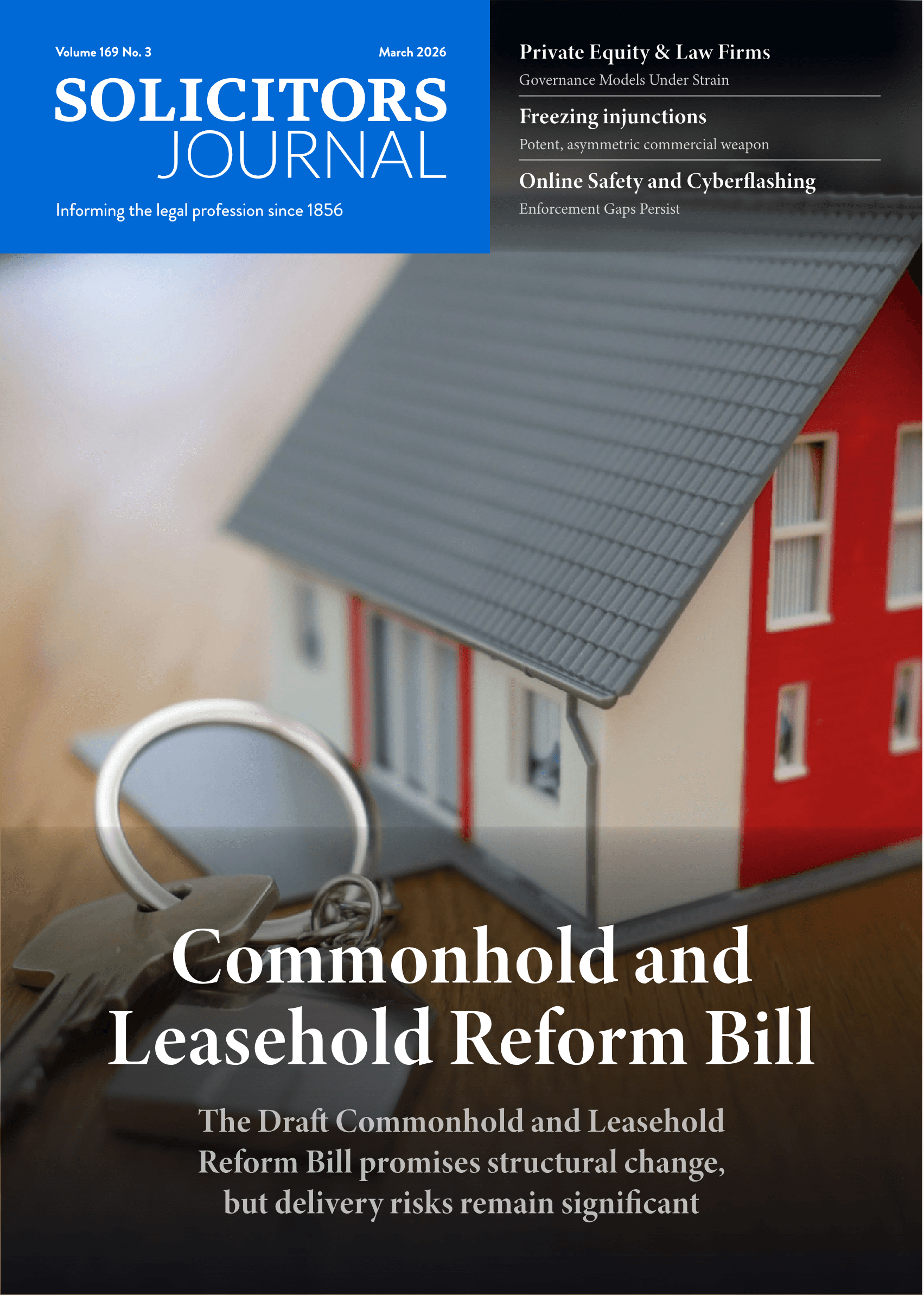SRA's credibility called into question
By Nicola Laver
Lawyers are not required to be paragons of virtue
Solicitors have accused the regulator of arrogance and questioned its credibility and lack of transparency, following its response to the Beckwith appeal. In the Beckwith case, the Divisional Court overturned the SDT’s ruling against a former Freshfields partner who it said acted without integrity while in a brief sexual relationship with a junior colleague.
The SRA decided not to appeal, and in an unusual statement – described by lawyers as lacking in humility – its chair Anna Bradley said the case had been “properly brought”. She said: “We welcome the court’s firm confirmation that our Principles of acting with integrity and upholding public confidence comply with human rights standards by providing the necessary degree of legal certainty, and that ‘common sense dictates’ that those principles are entitled to reach into a solicitor’s personal life. “We also welcome the clarity of the court’s confirmation that the public is entitled to expect that junior staff and members of the profession are treated with respect by more senior colleagues.” She pointed out that solicitors must not, as the court emphasised, “take unfair advantage of others”, whether in a professional or personal capacity. “In overturning the Tribunal’s decision”, Bradley added, “the court expressly limited itself to the circumstances of this case. Our case did not depend on the issue of consent. Rather, we argued that the circumstances indicated vulnerability and abuse of a position of seniority and authority. “Those and some other key facts were not found proved by the Tribunal.
The court’s judgment was based on and limited to the application of our Principles to the findings of fact made by the Tribunal in this case.” She said the SRA was “carefully considering whether this case highlights whether we need to do more to improve our ability to take appropriate action in the future” – but stopped short of recognising the court’s decision. Emma Walker, a regulatory solicitor at Leigh Day, said without that transparency, there is a real credibility issue for the regulator. “Although there were initially some real questions of concern around consent in this case, once those fell away the question of the reach of the regulator into people’s private lives crystallised”, she added. “It is incumbent on the SRA to reflect on where it focuses its attention and clearly explain the rationale behind its approach.” Walker said the SRA must recognise that those it regulates are not required to be paragons of virtue. She commented: “Precisely because individuals are at the heart of every matter the SRA looks at, there must be an onus on the SRA to investigate and put forward cases properly.” She said the regulator must “publish candid conclusions from [its] deliberations” following the ruling.

